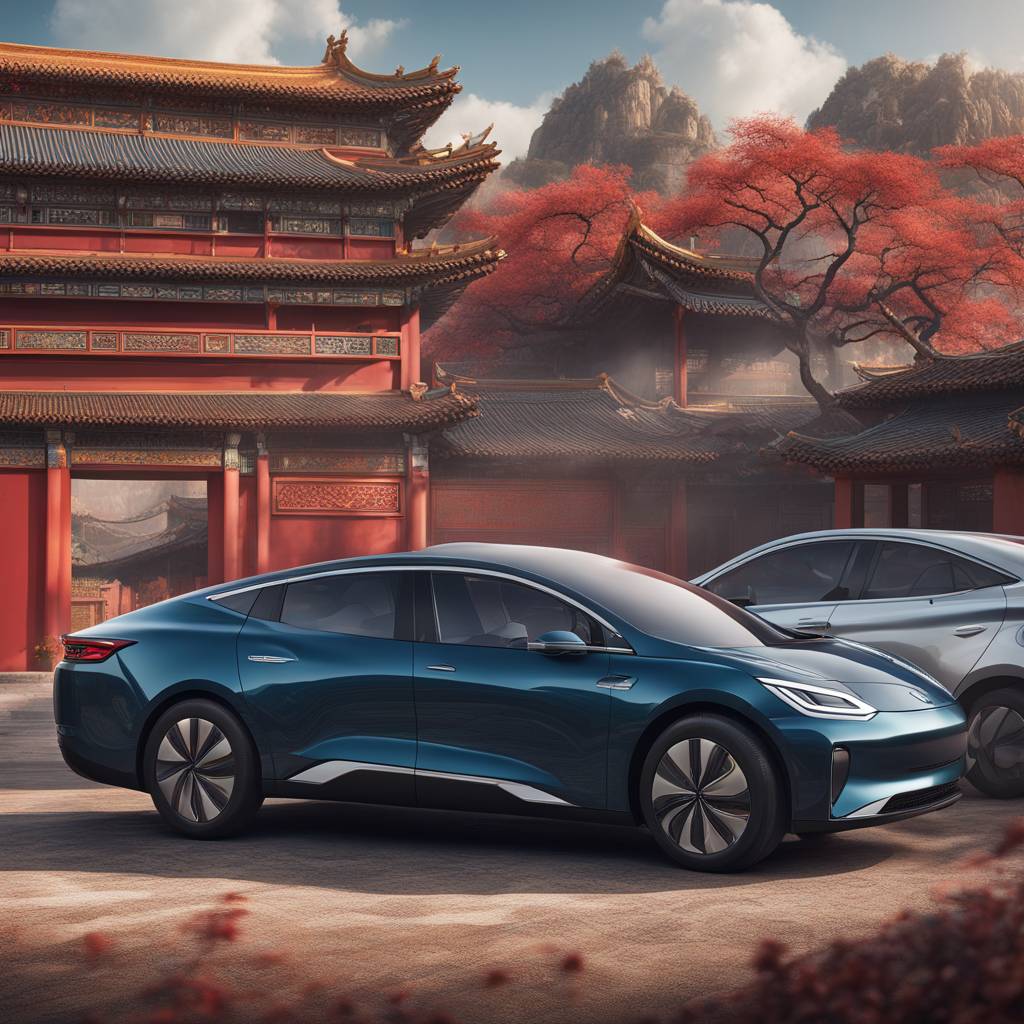China’s growing production of electric vehicles and green technologies has become a point of contention in a new trade fight between the United States and China. As the Biden administration supports industries such as electric vehicles, solar panels, and batteries in the U.S., concerns are rising that China may flood overseas markets with cheap exports, threatening industries in the U.S., Europe, and Mexico. Chinese automaker BYD recently introduced an electric SUV at a very low price, raising alarm bells about the impact on U.S. carmakers.
Former President Trump has accused China of planning to export cars into the U.S. through Mexico, and has threatened to impose new tariffs to counter this move. China currently has a significant share of the global electric vehicle market and is producing more than it can sell domestically, leading to a push to export cars overseas. Similar challenges are present in industries like solar panels, batteries, and steel, where overcapacity in China is fueling concerns about unfair competition in global markets.
The U.S. has faced similar trade challenges with China in the past, notably in sectors like steel and aluminum. America’s concerns around China’s industrial overcapacity have intensified in recent years, particularly with the country’s focus on exporting cutting-edge technologies like electric vehicles, solar panels, and batteries. While the U.S. has also supported its industries through subsidies, China’s subsidies are significantly larger in dollar terms, creating an uneven playing field for competition between the two countries.
There is an ongoing dialogue between the U.S. and China to address these trade issues, with China emphasizing the importance of its green products in the fight against climate change. However, Beijing has also acknowledged the need to address overcapacity and weak consumer spending for sustainable economic growth. As the EV market in China becomes increasingly competitive, concerns are mounting about the impact of China’s industrial strategy on global markets and the ability of American companies to compete.
In order to address these challenges, China will need to better coordinate its policies to encourage technological development without creating excess competition that could lead to market instability. Secretary Yellen has emphasized the importance of these trade issues to the Biden administration, indicating that while progress may take time, China is aware of the concerns raised by the U.S. and other countries about the potential impact of its industrial strategy on global markets. Discussions between the two countries will continue as they seek to find a path forward that supports fair competition and sustainable economic growth.















